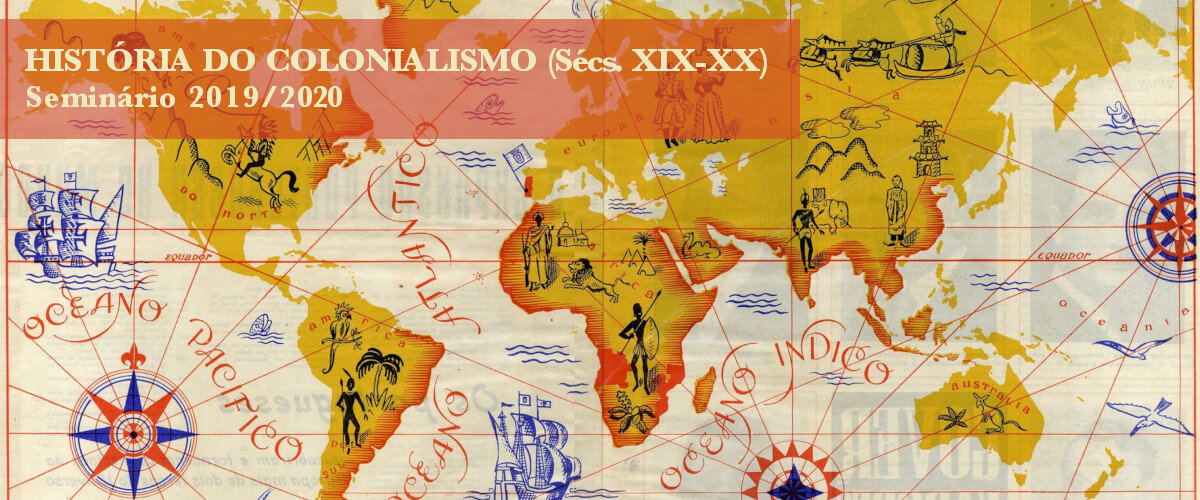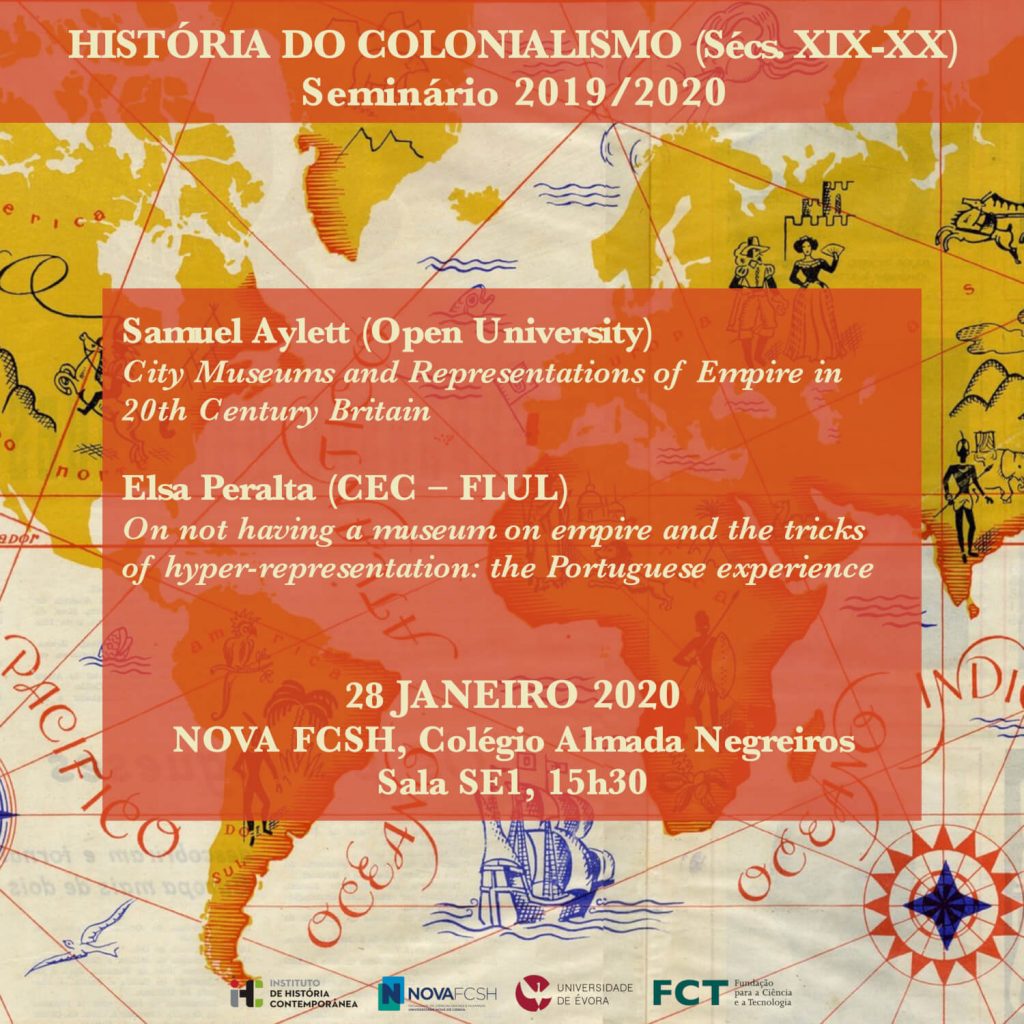janeiro, 2020

Detalhes do Evento
Second session of the Research Seminar on the History of Colonialism (19th- and 20th-Centuries), dedicated to the research on the colonial past and its historical legacies. The seminar will be a
Ver mais
Detalhes do Evento
Second session of the Research Seminar on the History of Colonialism (19th- and 20th-Centuries), dedicated to the research on the colonial past and its historical legacies.
The seminar will be a relaxed discussion forum, providing a welcoming environment for speakers to present their research at any stage of completion with a focus on the history of colonialism, decolonisation, and post-colonial societies in the nineteenth and twentieth centuries.
The first edition will run between January and June 2020.
Each session will feature a single presentation (between 20 and 30 minutes) or two speakers presenting on related topics (40 minutes both), which will be followed by Q&A.
It is organised by the IHC’s Thematic Line “Colonialism, Anti-Colonialism, and Post-Colonialism: Rethinking Empires and their Aftermaths”.
>> Full Programme 2020 (PDF) <<
2nd Session:
Samuel Aylett (Open University): City Museums and Representations of Empire in 20th Century Britain
Using the Museum of London as my principal case study, my paper will analyse the place and value of histories of empire within the Museum’s permanent galleries when it opened in 1976. The Museum of London was an amalgamation of two former London museums, the Guildhall Museum (1826), and the London Museum (1910); a ‘civic trophy cabinet’ struggling to break free of its antiquated collections. Encumbered by this anachronistic museological framework, the history of empire served as the apogee to a whiggish narrative of London beginning in pre-history and rising to the height of its glory with Victorian Imperialism.
Colonial historians have maintained that museums and their collections imitate the contours of imperial history. With the onset of decolonisation, museums were said to have engaged in the erasure of imperial allusions, relegating empire to museums’ picture stores and ‘haunting the footnotes of journals and monographs.’ My paper will challenge this narrative, arguing that contrary to a conscious erasure empire remained central to constructing metropolitan narratives at city museums in the UK in the latter half of the twentieth century. My paper will contribute to an on-going debate, which started in the 1980s, around the impact of empire on culture in Britain in the twentieth century. It is now widely held that there was ‘never likely to be any single monolithic imperial culture in Britain’. Rather, empire found expression in different settings at different times, evidencing the complex and ambiguous relationship between Britain and its empire in the twentieth century.
Elsa Peralta (CEC – FLUL): On not having a museum on empire and the tricks of hyper-representation: the Portuguese experience
If museums are key tools in the construction and reproduction of national identity narratives, and if Portugal’s national narrative is almost obsessively centred in the period of the “Discoveries” and the imperial past, why does not exist in Portugal a museum explicitly dedicated to this topic? Taking as a background the current discussion about the creation of a Museum of the Discoveries in Lisbon, this presentation aims to address the issue of the representation of the Portuguese colonial empire through museums in the national public space, especially in Lisbon.
Tempo
(Terça-feira) 3:30 pm - 5:00 pm
Organizador
Institute of Contemporary History — NOVA School of Social Sciences and Humanitiescomunicacao.ihc@fcsh.unl.pt Avenida de Berna, 26C - 1069-061 Lisbon

